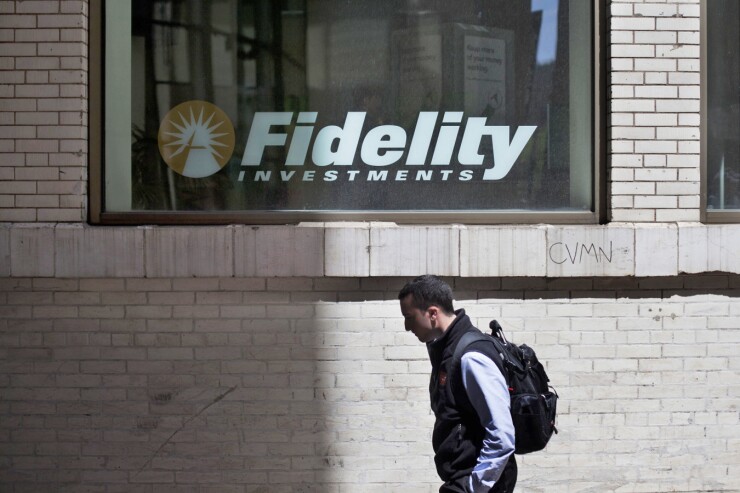Fidelity Investments is the latest brokerage firm to
Fidelity’s move could help the firm attract more young investors — and it represents another step in industry’s shift away from the AUM-based fee model.
For clients with $10,000 to $50,000 invested with Fidelity Go, the firm’s robo-advisor, Fidelity is dropping its 35 basis point management fee in favor of a flat $3 per month subscription. Customers with less than $10,000 will not pay any fees, while clients with more than $50,000 will continue paying the 0.35% fee.
Fidelity is the only brokerage offering this combination of account minimums, fees and portfolios with no expense ratio funds, says Kelly Lannan, Fidelity Investments’ vice president of young investors.
The new policy follows rival brokerage Charles Schwab’s decision to change pricing on Intelligent Portfolios Premium, a service that combines automated investing with access to a human CFP advisor, to a subscription fee in March 2019. Schwab charges $30 a month for accounts with at least $25,000, and offers a digital-only version of the service with no advisory fees.
“Every brokerage firm offers its own unique combination of product and service offerings; for many of us that includes lots of zeros,” a spokesperson for Schwab Intelligent Portfolios said in an emailed statement.
Last year, head of Schwab Advisor Services Bernie Clark
Fidelity’s new robo-advice fee is part of the launch of Fidelity Spire, a new mobile app the firm hopes will become a digital hub for young investors’ financial needs. Users can sync held-away accounts (using eMoney’s account aggregation technology), set financial goals, access educational material and open both cash management and brokerage accounts.
The app is free to use, even for people who don’t open a Fidelity account.
The Spire app will eventually include commission-free trading capabilities for do-it-yourself investors, Lannan says.
“We really want to help young adults who are just getting started on their financial journey feel more confident with their money,” Lannan says. “We’re trying to be that initial touch point … hoping that this is the first step in developing that lifetime relationship with them.”
Fidelity isn’t the only firm cutting fees on digital advice to coax younger adults into investing. Wells Fargo
Fintech startups like Betterment and Wealthfront have also been
Lannan acknowledges that there is a lot of competition in the market and says the breadth of what Fidelity can bring together into the Spire app is what will differentiate it for young investors.
Beyond brokerages like Schwab and Fidelity, firms across the wealth management industry are also warming to flat subscriptions for advice instead of AUM-based fees. Broker-dealers like LPL Financial, Cetera, Ladenburg Thalman and HTK are
The subscription e-commerce market has grown by more than 100% per year over the past five years,






